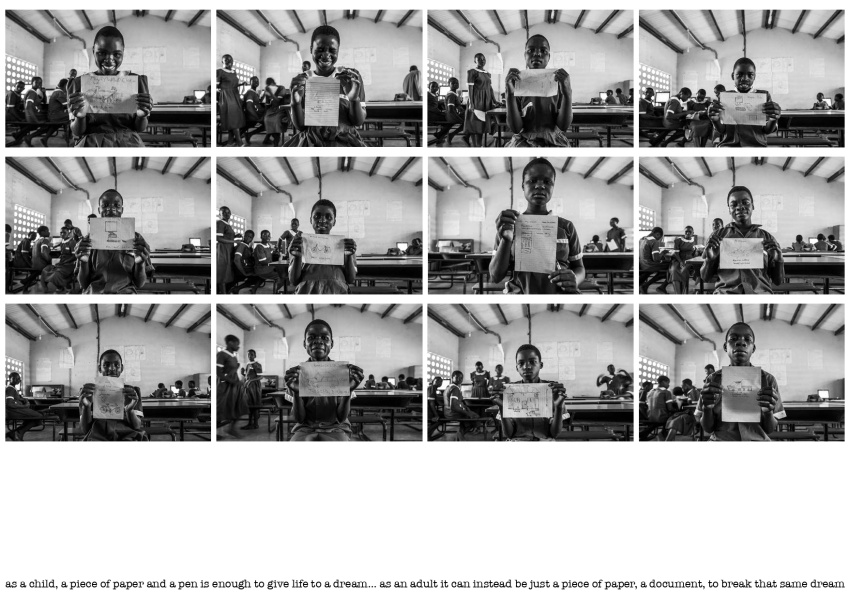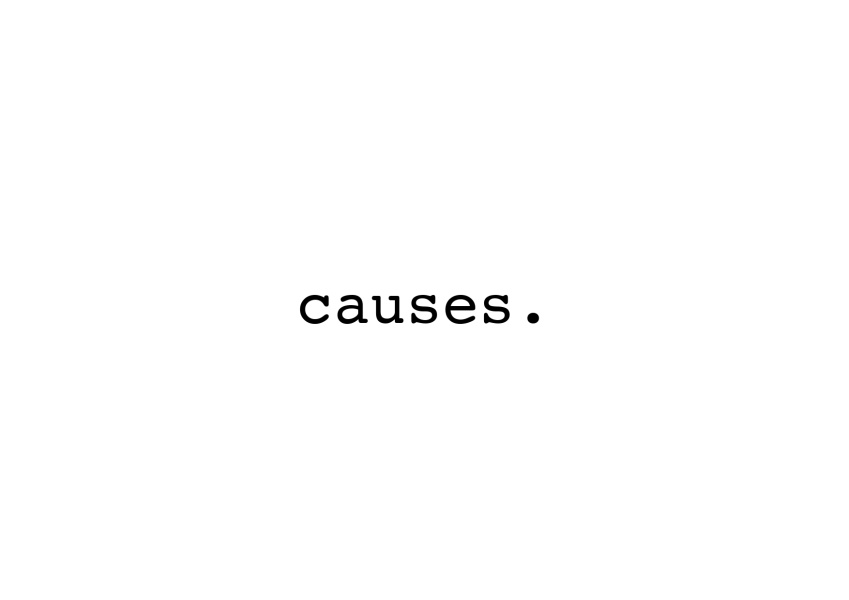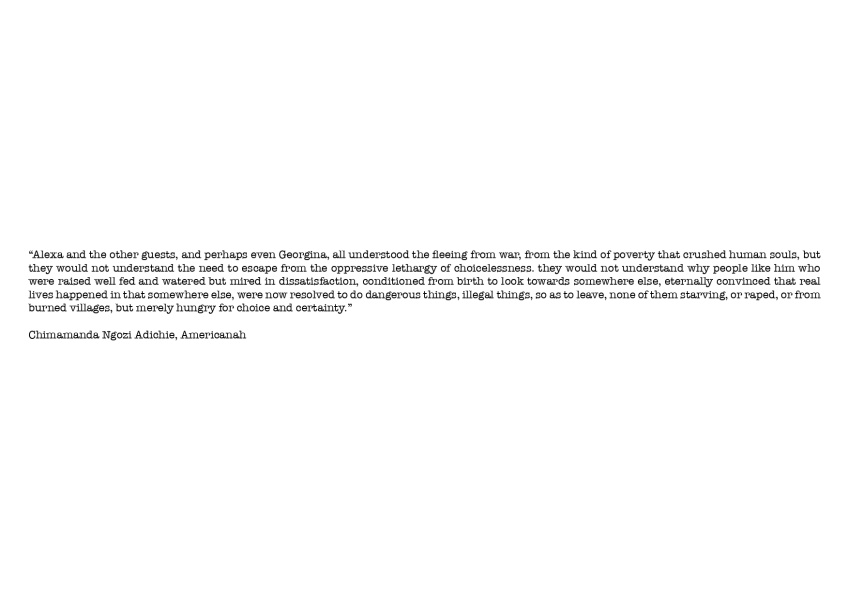«
<
>

i have a dreamThe narrative of migration is often characterized by distortions that negatively impact society's ability to comprehend. The individual life paths of those who decide to leave their home country are rarely shared; instead, there prevails an impersonal narrative, devoid of emotional depth, focused on the "phenomenon" and its political instrumentalization. Migrants are talked about not as individuals with their own stories, family and social ties, but as undefined groups of people, originating from distant realities with a potentially destructive impact on the countries they move to. The narrative is flattened, every complexity sacrificed. In this photographic narrative, which relies more on emotional suggestion than on didactic representation of events, one speaks of one of the many migratory realities, that of those who, more or less forcibly, leave their country of origin due to a multiplicity of causes linked to the deterioration of social, political, economic, and environmental conditions, and, unable to pursue alternative paths, embark on a difficult journey, sometimes with disastrous outcomes, to reach an elsewhere that often rejects them. It is a story that starts with a dream and ends with the dramatic end against which that dream shatters, attempting to encapsulate in a few steps all the complexity that often eludes, starting from a "before" that is normally absent from the narrative, emphasizing some key moments in the lives of those who decide to leave. Dreams - understood as aspirations - and identity are part of human life regardless of geography and documents. But the superstructures that humans have created have ultimately entrusted the definition of our identity primarily to documents, linking the possibility of realizing our dreams to the totally random element of geographical belonging. Every person who migrates, regardless of the boundary between decision and coercion, as a human being, carries within themselves a dream. A dream that often shatters against war, genocide, persecution, authoritarian governments, environmental crises caused by climate change, and lack of opportunities. People leave their country, their home, their loved ones, for a series of compelling and tragic reasons. But not only that. Even the wear and tear of a life slowly consumed by the total lack of opportunities can become the impetus to embark on a journey. The intensification of human activity with a negative impact on the environment - caused by unsustainable economic growth that drives excessive consumption and overproduction - is at the root of resource depletion, biodiversity collapse, and ongoing climate change. Although adverse climate events are now recognized as contributing factors pushing people to migrate, the relationship between the two events is highly unpredictable and difficult to measure: the science of climate change is complex, not to mention the measurement of the impact of environmental deterioration on societies with different resources and capacities to adapt to external shocks. Determining unequivocally the causality between the climate crisis and migration is very difficult, also because, for most people, the factors contributing to the choice to migrate are multiple and belong to different dimensions: social, political, economic, and environmental. It is impossible to fully understand the horror of flight unless one experiences it firsthand: the stories tell us about physical wounds, but the emotional ones remain deeply hidden and are the most agonizing. Of all this, the listener can only grasp some fragments, disordered mental images that barely come together. Some, after years of journeying, manage to reach the doorstep of a new world, in which they place all their hopes: but many do not make it. In the cemetery of Lampedusa, an unspecified number of people who died attempting to reach Europe have found their final resting place. Most of the graves lack a name: no information could be retrieved for these deceased. But, as the plaque at the entrance of the cemetery says, 'They all have lived. They have rejoiced and suffered, hoped and fought, and someone has awaited and wept for them'.
|






















